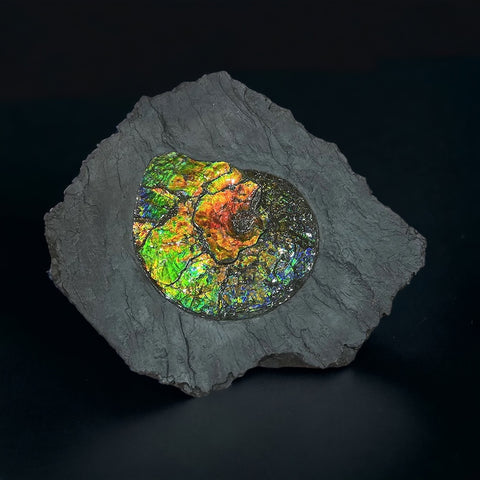Sold
Large Pyritized Crinoid, Posidonia Shale - 74.8 x 37.4 in.
This piece has been sold, but we may have a similar item available. Contact us online to make an inquiry.
This stunning pyritized crinoid ("sea lilly") is from the Holzmaden Shale in Germany, which boasts some of the best-preserved fossils ever documented. This specimen is a testament to the beauty and intricacy of prehistoric life. The large size, immaculate preservation and striking aesthetics make it a world class piece. This beautiful crinoid specimen has a natural covering of sparkling pyrite that is particularly lustrous; moreover, the flowerhead is especially sizeable - 20.5 inches.
This crinoid thrived in warm Jurassic seas that teemed with marine reptiles like ichthyosaurs, a variety of ammonites and many fish species. Although they resemble plants, crinoids are in fact filter-feeding invertebrates related to starfish and sea urchins. Interestingly, crinoids are considered living fossils - about 600 species inhabit today's oceans, many of which have vibrant coloration.
Recently, marine fossils have been trending as showcase pieces in home interiors and crinoids in particular are sought after by fine art enthusiasts, designers and architects.
• Species: Seirocrinus subangularis
• Formation: Posidonia Shale
• Location: Holzmaden, Baden-Wuerttemberg, Germany
• Age: Lower Jurassic (approximately 180 million years old)
• Slab: 74.8 x 37.4 in. - 1 large flowerhead, 20.5 inches.
• Approximate Weight: 300 lbs
• Wall-hanging metal frame included;
• Please contact us about shipping arrangements
Note: Specimen has been inset into the shale matrix











